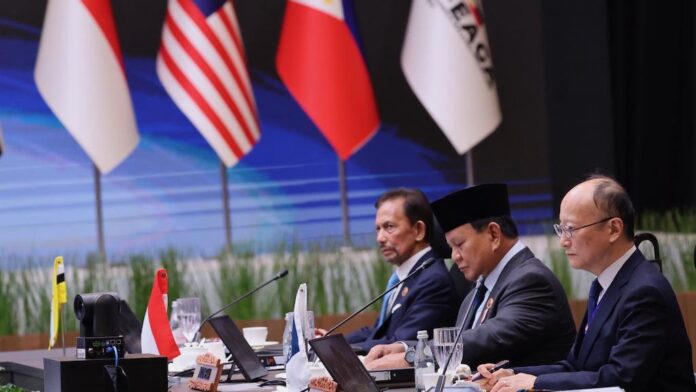Asian Development Bank (ADB) President Masato Kanda reaffirmed in Malaysia the institution’s strong commitment to advancing regional cooperation and integration at the 16th BIMP-EAGA and IMT-GT Summits, highlighting a unified approach to tackling regional challenges while unlocking shared opportunities.
Speaking in Kuala Lumpur, Mr. Kanda emphasized the urgency of addressing trade tensions, technological disruption, and growing threats to food and energy security. “Our longstanding partnerships will help us turn obstacles into new pathways for progress,” he said.
As part of this pledge, ADB will allocate an estimated USD24 billion to Southeast Asia over the next three years, prioritizing initiatives that boost connectivity, food security, private sector-led growth, and energy integration. Notably, ADB is ready to provide USD10 billion to support the ASEAN Power Grid and will increase trade and supply chain financing in the region to USD2.5 billion annually by 2030.
In the food sector, ADB is scaling up its commitment to USD40 billion globally by 2030. Within the BIMP-EAGA region—dubbed the “ASEAN food basket”—ADB has already committed USD1.1 billion across agriculture, aquaculture, and marine conservation, with a new USD400 million loan announced to restore marine ecosystems in the Philippines.
ADB also aims to quadruple private sector financing in Southeast Asia to USD13 billion annually by 2030, aligning with BIMP-EAGA and IMT-GT strategies to catalyze investment-led growth.
During bilateral talks, Mr. Kanda praised Malaysia’s regional leadership and the country’s role in advancing energy integration. He welcomed the renewed Agreement of Cooperation between Malaysia and ADB, including expanded support for green city development across 14 cities. Similarly, in discussions with Thai Prime Minister Paetongtarn Shinawatra, Mr. Kanda underscored ADB’s support for renewed sovereign lending in Thailand targeting transport, healthcare, and flood resilience.
Through strategic partnerships and enhanced financing, ADB continues to position regional cooperation as a cornerstone for resilient and sustainable development in Southeast Asia.







